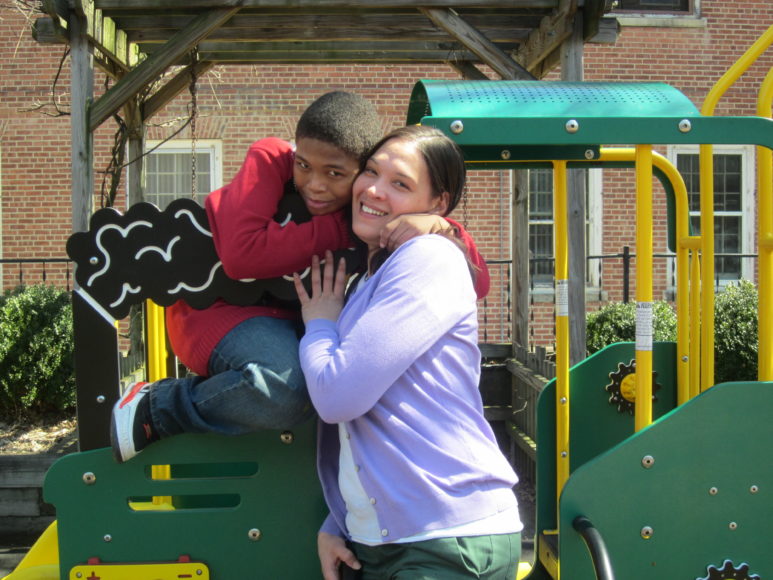Queens-based Hour Children has helped incarcerated women get their lives back on track through various services, one being a visiting program for children, like the summer one operated in conjunction with Bedford Hills Correctional Facility and Taconic Correctional Facility. The seven-day program helps give mothers and their kids an opportunity to visit each other for several hours each day. Additionally, the summer program offers games and activities, aiding the children’s social development and allowing them to bond with others in their situation.
Host families play a vital role by welcoming children into their households for the summer program’s duration. Hosts transport the kids to and from the facility their mothers are incarcerated in, provide an inviting place to stay between visits and take them on field trips or other excursions.
One such host is Kate Poletta, a champion of the program with experience as a special education teacher. A Mount Kisco resident, Poletta has been a host for 18 years, helping about 20 children participate in activities and connect with their mothers.
“I just see the benefits of it and the beauty of it and how it helps everyone involved,” says Poletta. “And the staff at the center are just so nice and wonderful, and they know they can always call me if they need an extra kid in the house, because I never say no.”
Over the years, the children Poletta has hosted have also developed a fondness for her and her four kids, now between the ages of 16 and 22, as well as her loving pets. The mothers of the children are likewise appreciative of the efforts hosts like Poletta put into the program. “Some days, (the children) come back from the center and they have a card that they wrote with their mom, a thank you to my family, and they draw pictures and it’s just so sweet,” Poletta adds.
But to the disappointment of everyone involved, the visiting program for children went on hiatus in 2020 and 2021 due to Covid-19. Some of the women in Bedford Hills Correctional Facility did contract Covid, so the decision to shut down was justified. Nevertheless, mothers and their children have found the circumstances difficult. “It’s sad not to be able to see your mom,” Poletta says. “Some of these kids only get to see their mom once a year.”
Incorporated in 1992, Hour Children grew out of a home for children of incarcerated women that Sister Teresa Fitzgerald, CSJ, known as “Sister Tesa,” founded in Long Island City, Queens, in 1986. Alethea Taylor, Rh.D., CRC, who succeeded Fitzgerald as executive director at the end of January, plans to build on her predecessor’s work, saying, “I’m hopeful that in the very near future when you think about women in justice and criminal justice and reforms and so forth, you’ll center Hour Children in that thought, just like we do (St. Jude Children’s Research Hospital) when we think about children and cancer.”
Per the organization’s website, “Hour Children’s name acknowledges the key hours that impact the life of a child with an incarcerated mother — the hour of her arrest, the hour of their visit and the hour of their reunification.” To this end, Hour Children has developed several programs and services to help incarcerated mothers not only receive visits from their children but reintegrate them into society. This includes mental health counseling, employment services, childcare and housing for women who have served their time but may not have a place to stay, as well as access to Hour Children’s food pantries and thrift shops, the latter a necessity for young children who quickly outgrow their clothing.
“When you picture Hour Children, it’s not just a series of different programs,” Taylor says. “It is a well-thought-out plan to make sure that we give the woman every opportunity to do well, and that’s why we have all the services that we have — because they’re intrinsically connected to stabilizing that woman and building that relationship between mother and child.”
Taylor’s plans for Hour Children will look into several areas for improvement, namely centering on how the organization handles its racial justice equity work, expanding into other women’s’ prisons and securing additional housing.
With summer around the corner, Poletta and other host families await a go-ahead from the state after a two-year hiatus. The staff is also planning for the first time a summer camp in Westchester County, where host families can volunteer by running activities and preparing meals.
Regardless of what changes Hour Children and its visiting program undergo, longtime hosts like Poletta are always eager to help nurture the children and reconnect them with their mothers. “When (my own kids) are all out of the house, I’ll still be doing the program,” Poletta says. Beyond the program, she and her family maintain close relations with the children and happily host those who “age out” of the program but still want to visit their mothers and the Poletta family.
“I am 100% behind this program, and I try to tell as many friends of mine about it, because they always need more volunteers,” she adds. “A lot of times, people are hesitant. They have busy lives. But when they do it, they realize ‘Oh my gosh, this is amazing.’”
For more, visit hourchildren.com





